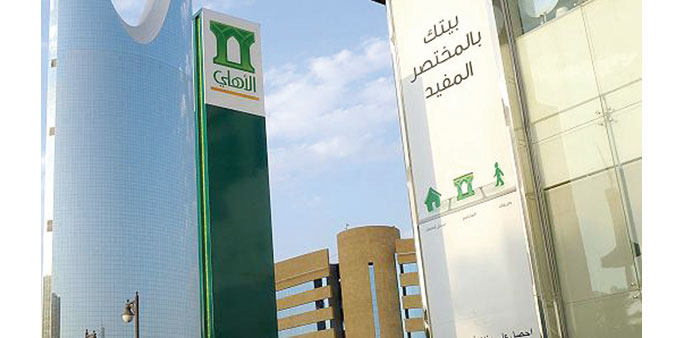Bloomberg
Riyadh
Hasan al-Hazmi knew he couldn’t depend on Saudi Arabian lenders when opening his business last year even with the kingdom’s drive to boost credit to small-and medium-sized companies.
“Banks are not lending to any startups without providing annual financial statements audited by licensed entities in Saudi Arabia,” said al-Hazmi, co-founder of Riyadh-based Supply & Logistics Solutions that started operations last year providing storage and cargo services. “How would I be able to provide a bank with statements if I just started?”
Lending under the nation’s SME Loan Guarantee Programme, also known as Kafalah, plunged 76% to 572mn riyals ($153mn) last year as banks tightened rules, according to data from the Saudi Industrial Development Fund. That compares with a 12% increase for total bank credit last year to 1.25tn riyals, according to Saudi central bank data.
“Banks in Saudi Arabia find it challenging servicing the SME market,” Yahya Alyahya, chief executive officer of Bahrain-based Gulf International Bank, which is majority owned by Public Investment Fund of Saudi Arabia, said in an e-mail on Tuesday. “SMEs tend not to have reliable financial information, specifically audited financial accounts.”
The difficulties in obtaining credit may be an obstacle in the country’s efforts to create jobs and diversify the economy away from oil, which brings about 90% of government revenue. The kingdom, the world’s biggest crude exporter, is investing $500bn on industry, transportation and housing.
Saudi Arabia’s unemployment rate was 11.7% last year, according to the Central Department of Statistics & Information. Employment growth for Saudi citizens was 4.6% between 2010 and 2012 compared with 8.5% for all jobs created in the kingdom, according to data on the International Monetary Fund’s website.
Small-and mid-sized enterprises’ contribution to Saudi Arabia’s gross domestic product was 33% last year compared with 64% in Japan, 57% in Spain and 50% in the US, data from World Bank’s International Finance Corp.
“Lower lending to SMEs will have a medium-to long-term effect on job creation but the effect isn’t immediate as jobs are also being created for Saudis outside the Kafalah programme,” John Sfakianakis, head of Middle East at Ashmore Group, said in an e-mail on Tuesday. “Banks could be lending less due to a temporary shift as it’s a buyers market, with more competition and yield compression.”
The three-month Saudi interbank offered rate, the benchmark used by banks to price loans, has tumbled 16 basis points since the end of 2013 to 0.79% on Thursday, according to data compiled by Bloomberg. That’s the lowest on a closing basis since January 2012.
Saudi banks tightened lending criteria after two family-owned businesses defaulted on at least $15.7bn of loans in 2009 and the global credit crisis hurt the economy. Growth slowed to 1.8% in 2009 from 8.4% the previous year, according to data compiled by Bloomberg. The economy grew 4.6% last year.
The number of loans from National Commercial Bank, the kingdom’s biggest lender to SMEs through the Kafalah programme fell to 232 last year from 1,048 the previous year. Saudi British Bank and Banque Saudi Fransi approved only two loans each.
“I was told by a bank to come back after a year with audited financial statements for a loan,” al-Hazmi of Supply & Logistics Solutions said. “Unfortunately, my business is less than a year old and I can’t provide a bank with an annual financial statement even if I could afford it.”
Business / Business
Saudi banks pull welcome mat for SMEs seeking loans; jobs, diversification at risk

The number of loans from National Commercial Bank, the kingdom’s biggest lender to SMEs through the Kafalah programme, fell to 232 last year from 1,04
